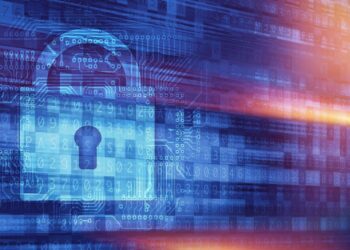The Internet has become a major hub for business and commerce. Unfortunately, the same convenience it provides has also made it an easy target for cybercriminals.
Cybersecurity is a major concern for small and medium-sized businesses (SMBs). The risks of cyberattacks are very high in these types of organizations, which often lack the resources to protect themselves from such attacks.
In this article, we will explore how cybersecurity can help SMBs and small businesses avoid cyberattacks that can cause irreparable damage to their operations.
1. Be Aware of What Types of Data You Have Access to
While you may be concerned about hackers attempting to breach your network, keep in mind that your hardware can also be stolen. Ensure that all of your employees understand the significance of any data that may be stored on their cell phones or laptops while they are out and about.
2. Use a Password Manager
Ensure that each of your employees has a strong password on all of their sensitive information-containing devices. You should also establish a policy for changing passwords at regular intervals, and use a password manager (we recommend and provide a couple of specific solutions. Reach out if you have any questions).
3. Encrypt and Back-Up Sensitive Data
Backing up is only secure if all of the backed-up data is encrypted and off the network. The only way to be safe is to encrypt all devices and drives, including your backups, as well as encrypt emails containing sensitive information.
4. Separate Sensitive Data from Public Domain
We need to be mindful of the fact that the data we are collecting can be sensitive in nature. This data can include information such as names, addresses, social security numbers, and other personal details. We need to ensure that this type of data is separated from the public domain so that it does not get exposed.
There are different ways in which we can do this – for example by using a separate database or a separate server for storing these sensitive details. But there is also another way of doing it that doesn’t involve any technical know-how – by using passwords and encryption keys or at least separating data based on who should have access to it. Not every employee needs to have access to ALL data…
5. Protect Your Devices with Updated Software and Security Features
Any device connected to the internet is vulnerable, so make sure you have the most recent anti-virus software installed. Conduct regular checks, and make sure that someone is in charge of updating the software on a regular basis.
6. Consider Your Connections & Their Safety
We need to be aware of the risks that come with being connected. We should be mindful of what we post on social media, and who we are connecting with.
We should also take care of our digital footprint. This includes making sure that all the accounts on social media are not connected to each other. This way, if one account gets compromised, it will not affect any other accounts and all the data will remain safe.
7. Monitor Your Network Activity for Suspicious Behavior
A user’s network activity is monitored for suspicious behavior in order to protect the user from any potential threats.
Monitoring your network activity for suspicious behavior is a necessary precaution if you are worried about the safety of your computer and data. This can be done by making sure that you have the most recent virus protection software installed on your computer, as well as by regularly scanning your files and checking for malware. There are a lot of tools that professionals like us use, to automate the process, but also add a big layer of information gathering from your devices, network equipment, etc.
8. Educate Employees about Cybersecurity Awareness
Ensure that all of your employees understand the importance of adhering to cyber security best practices and that you have a set of clearly defined rules for them to follow. we’re referring to policies, procedures, and training videos.
9. Make Sure Third-Parties You Deal with Are As Safe/Secure As You
Third-party services are the backbone of the internet. They provide a lot of functionality and services that we take for granted. This is also true for your 3rd party vendors/ providers.
However, it is important to make sure that these third parties are as safe and secure as you are. They should have a privacy policy in place, encryption, and security measures to protect your data.
10. Don’t Mix Work and Pleasure
It is important to know what the company policy is about social media. Some companies forbid their employees from using social media during work hours, while some allow them to use it as long as they are not doing it during work time.
Avoid using the same device for business and home as much as possible. Don’t keep business information on a device that you share with family, friends, or roommates. This exposes sensitive data to unneeded risks.
In conclusion, it is important for small businesses to understand the importance of cybersecurity. They need to make sure that they are taking the necessary steps to protect themselves from cyber threats.








